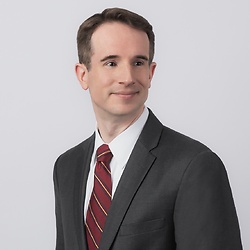Nebraska Court Rules Injury from Malicious Prosecution Occurs at Time of Charging
A Nebraska state trial court, applying Nebraska law, has held that law enforcement liability coverage for malicious prosecution claims is triggered solely when an individual is charged, rejecting several alternate trigger theories put forward by the insured county. Gage Cty., Neb. v. Neb. Intergovernmental Risk Mgmt. Ass’n, No. CI 17-0339 (Neb. Dist. Ct. Oct. 10, 2018). In so holding, the court joined a majority of jurisdictions that have considered the issue.
In 1985, six people were arrested and charged with the murder of a woman in Beatrice, Nebraska. All but one of the arrestees – who came to be known as the “Beatrice Six” – pleaded guilty and were sentenced to ten or more years in prison. The one that refused to plead guilty was convicted and sentenced to life in prison. In 2008, the Beatrice Six were exonerated by DNA evidence. They filed federal civil rights actions against Gage County and several deputies involved in their prosecution and were awarded $28.1 million. Gage County, in turn, sought coverage under a policy issued by its municipal risk-insurance pool (NIRMA) and several related excess policies.
The excess insurers’ policies had a retroactive date of August 2, 1989. The Beatrice Six were all arrested and charged with the crime prior to that date but several of the guilty pleas, the trial, and their eventual exoneration occurred after the retroactive date.
The court joined the “clear majority” of courts holding that law enforcement liability policies are triggered only at the time of charging. This approach, the court held, best aligns with the concept of “personal injury” in the policies, that is, the “time when harm begins to ensue.” Because the Beatrice Six were charged prior to the retroactive date, the policies were not triggered.
The insured county urged a “continuous trigger” theory whereby any policy in effect between arrest and conviction would be triggered, similar to the continuous injury trigger theory that the Nebraska Supreme Court has adopted for environmental pollution claims. The district court distinguished malicious prosecution claims from pollution claims, however, noting that with malicious prosecution, “any reasonable person recognizes that the injury occurs [at charging],” unlike pollution claims where the time of injury is “difficult to ascertain.”
The court went on to reject several other trigger theories proposed by the insured county including conviction-as-trigger (as there was no caselaw to support it, and injury had clearly been suffered prior to conviction) and exoneration-as-trigger (because exoneration did not fit with the definition of an occurrence (“an event that results in damage”) found in the policies).


